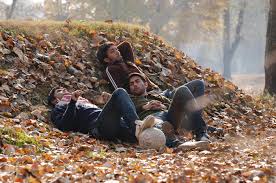Not only Pandits but hordes of Muslims too left the Valley following the outbreak of violence. Today, they make a living from IT, media and, of course, selling handicrafts.
 One of the memories Rizwan, now in his 40s, has of his early days in Bengaluru in the 1990s, is standing outside a public telephone booth waiting for the weekly call from his home in Srinagar. “The call would come in the evening at a fixed time, and missing it meant my parents would worry. The phone calls were our only way to get news from the Valley,” says Rizwan, who now works with a media company.
One of the memories Rizwan, now in his 40s, has of his early days in Bengaluru in the 1990s, is standing outside a public telephone booth waiting for the weekly call from his home in Srinagar. “The call would come in the evening at a fixed time, and missing it meant my parents would worry. The phone calls were our only way to get news from the Valley,” says Rizwan, who now works with a media company.
Rizwan was among the hundreds of young Kashmiri Muslims who were either sent away or left the Valley in the 1990s to escape the insurgency. When Kalashnikov wielding insurgents in Kashmir dispossessed the minority Pandit community in 1990, a trickle of Kashmiri Muslim youth out of the Valley began too. Twenty six years later, they’ve spread across the country, and built new lives in parts as far as the southern tip of India.
Goa’s hot, sandy beaches could not be any further from the cold climes of Kashmir, but thousands of Kashmiris looking for stability and peace have headed to the coastal belt. Sayeed, who left Srinagar in 2000, moved to Goa to trade in Pashmina shawls and gems. Russian tourists ensured a roaring trade and before long, he rented a large store on Calangute main avenue. “The Russians are gone, and business has slowed down, but it is peaceful here,” he says.
Close to 10,000 Kashmiri Muslims have settled in Goa. A young man, speaking on condition of anonymity, says the atmosphere in Kashmir makes it impossible for people like him who aren’t interested in politics to live and work freely. The 26-year-old has worked in bars and restaurants and finds it easy to assimilate with the easy-going locals.
Further down the west coast, Kashmiri Muslims have made the colourful lanes of Mattancherry in Kochi their home. Close to 40 families are engaged in the handicraft business here. Of the 110 shops in Jew Town, 35 are owned by Kashmiri Muslims. This commercial takeover took place after most native Jews immigrated to Israel.
Sajid Khatai, who says his uncle Gulshan Khatai was the first Kashmiri Muslim to move to Kochi, runs a handicraft showroom in Jew Town. “My children are studying in Kochi and my wife works in a Bank,” he says. “We have found peace and a home here.”
Though Kashmiri Muslims have fond memories of ‘home’, they don’t want to return to turmoil and unemployment. Until the late 1980s, tourist spends kept most Kashmiris prosperous. “After the violence erupted, the tourists abandoned the Valley and those of us engaged in business associated with tourism had to move to greener pastures,” says Khurshid Gilani, president of the Kashmiri Traders’ Association in Kochi.
Mohammad Ashraf, a Kashmiri businessman who lives in Goa with his family, says, “If J&K has to progress, people have to stop fighting . What will we get after ‘azadi’? Will we get jobs? If we are separated from India, the raw material will have to be procured from India.”
The IT boomtowns of Pune and Bengaluru have drawn young, educated Kashmiris looking for jobs. The Kashmir Association Bangalore says there are about 500 families in the IT city. Bengaluru also has a Kashmiri Hindu Culture Welfare Trust, which has an equal number of families as members.




